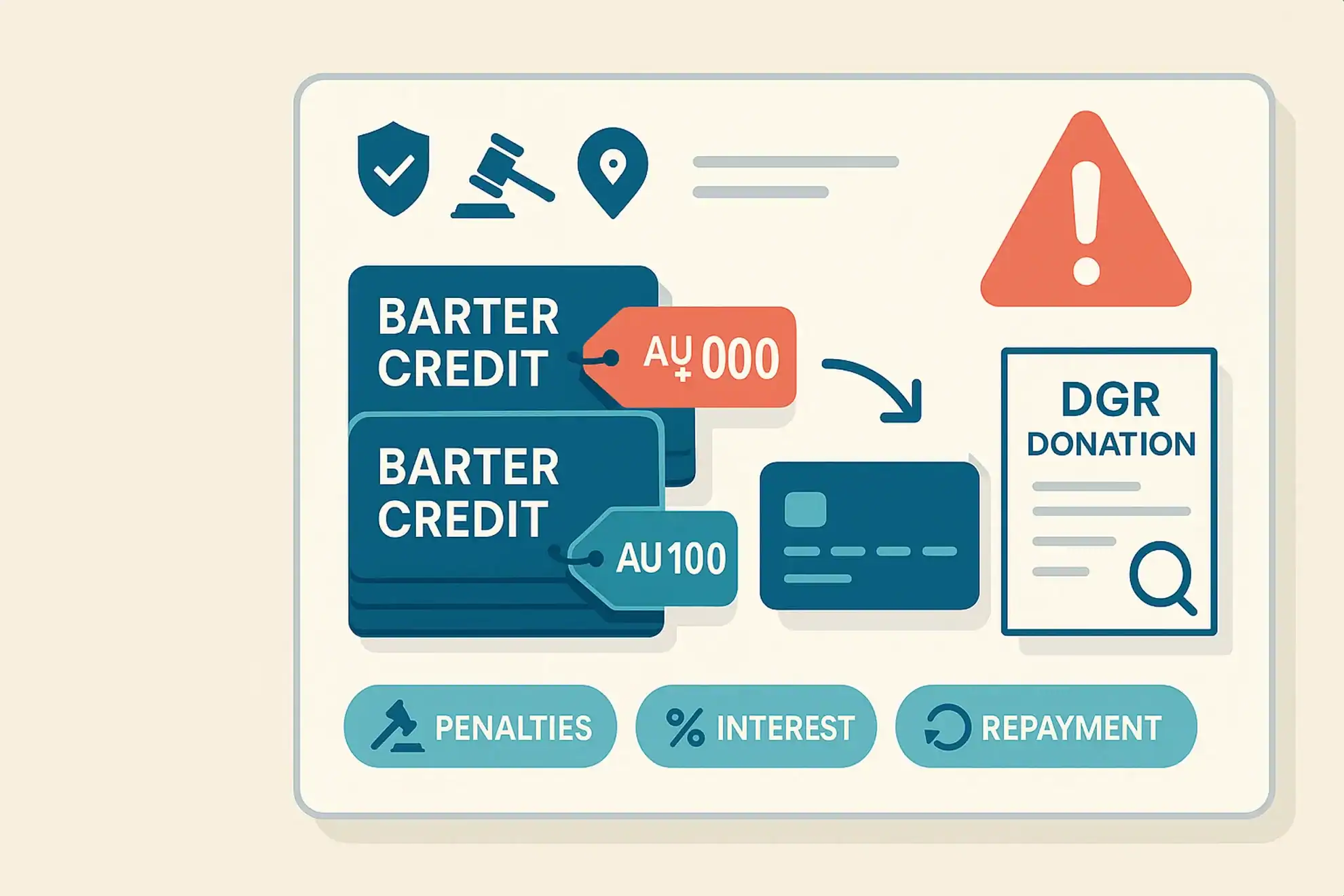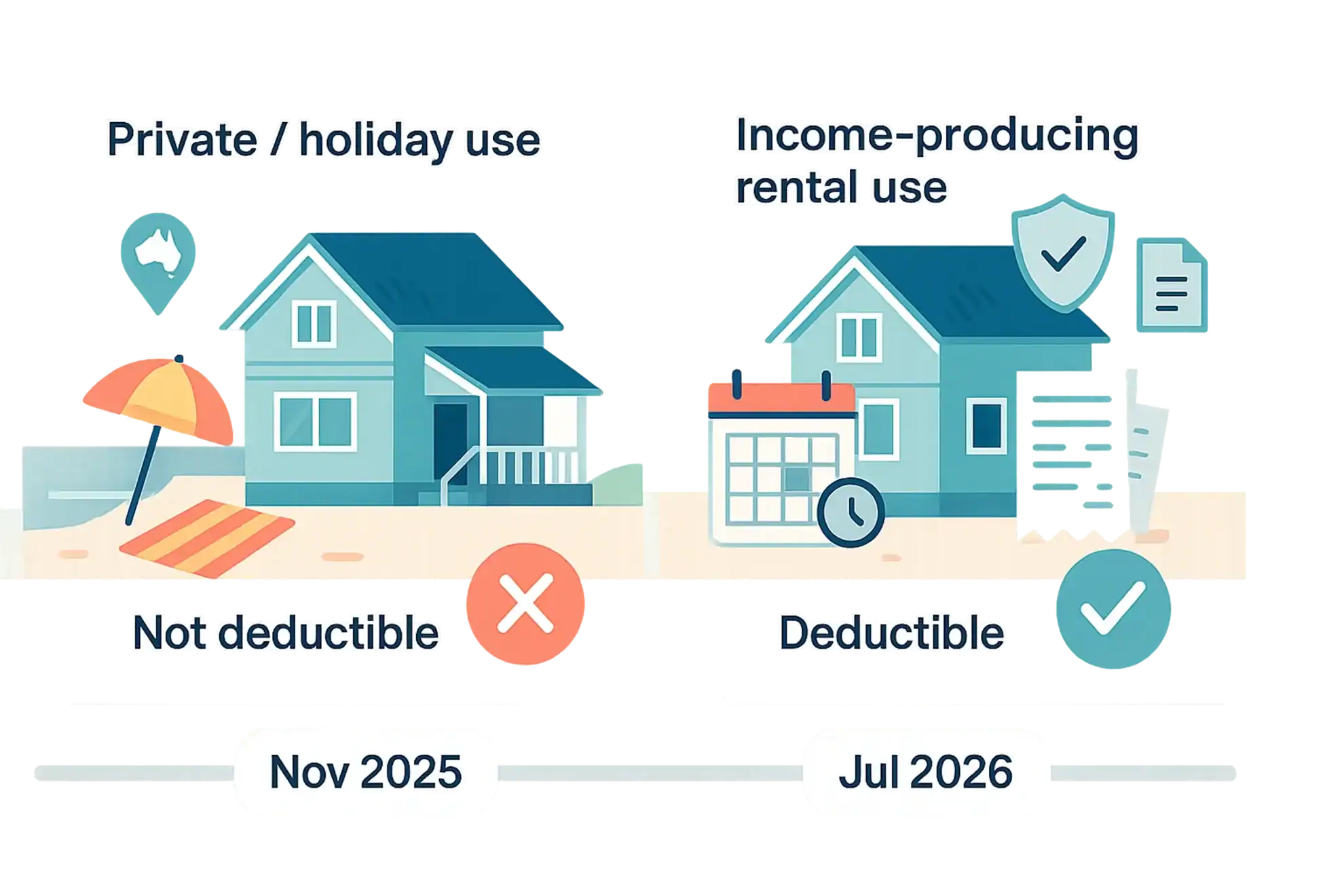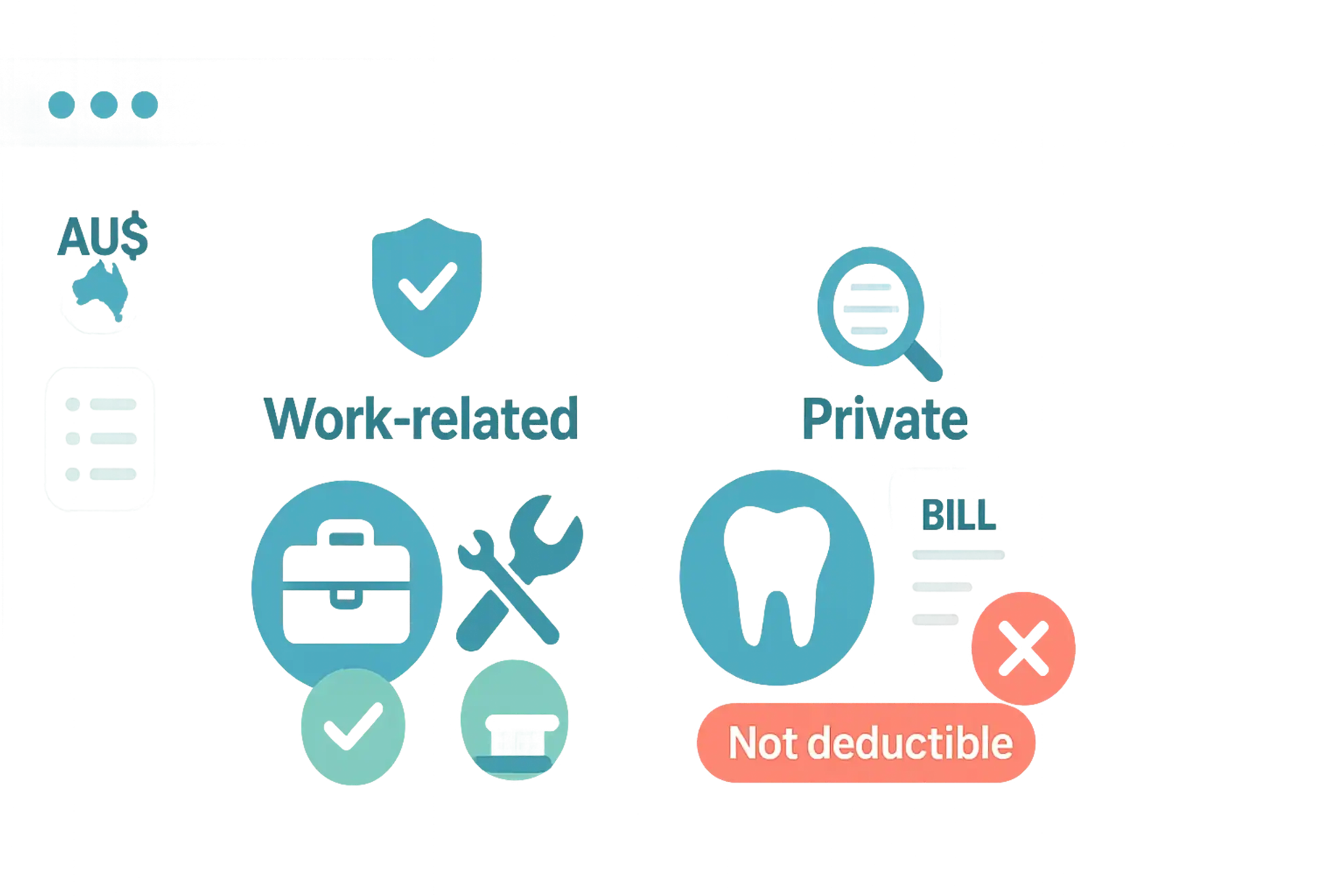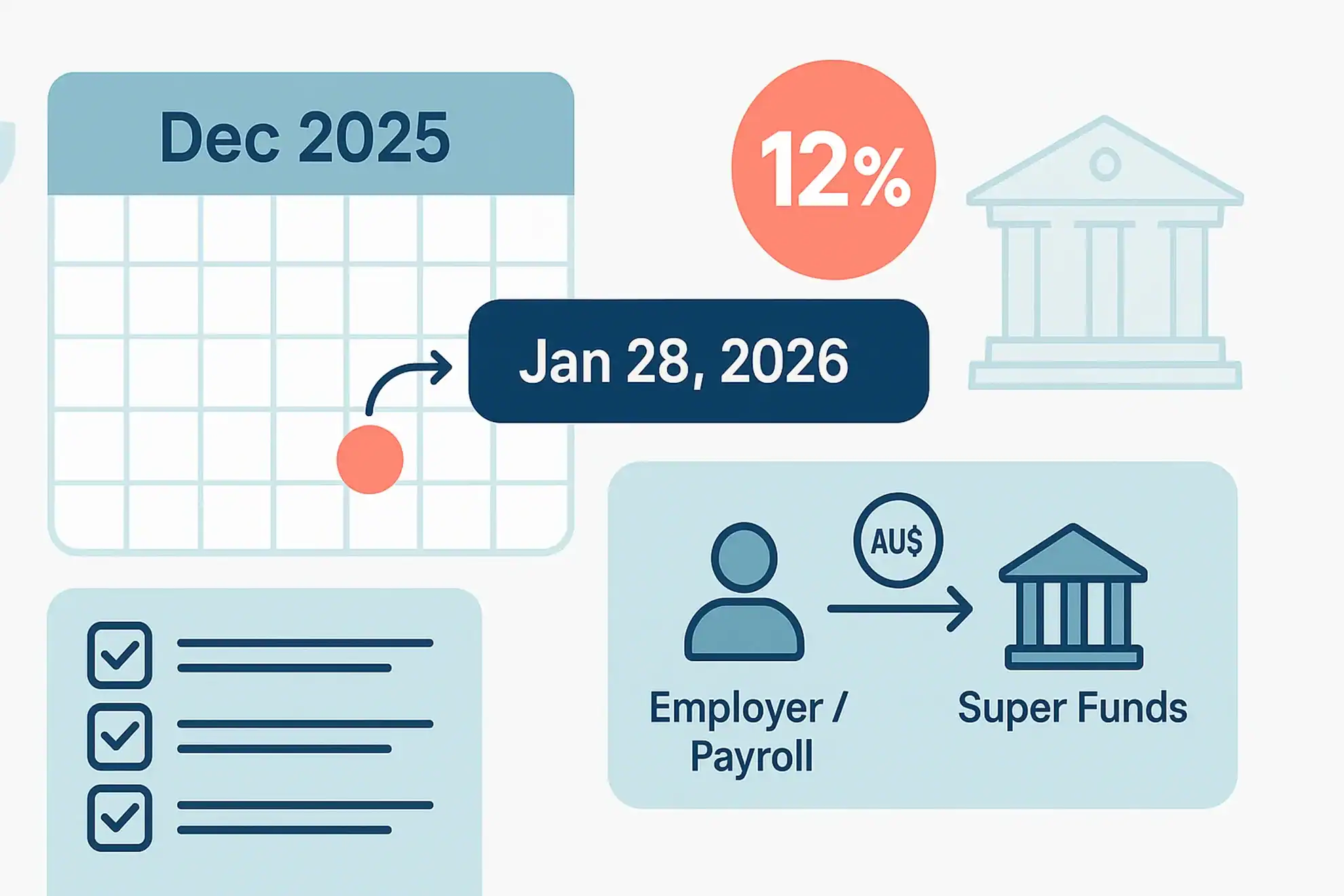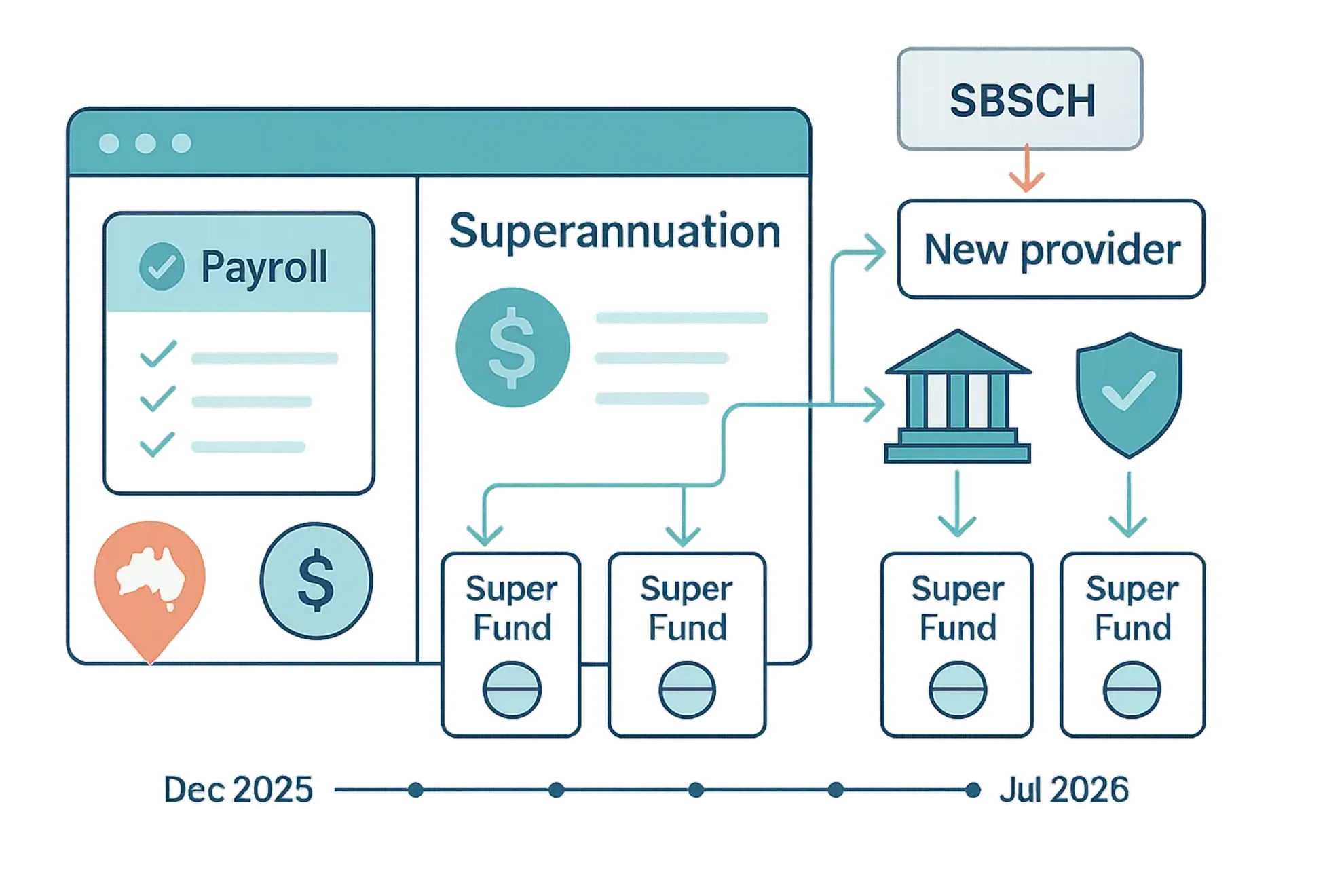Latest News
ATO warns about barter credit tax scheme
The ATO is warning the community to steer clear of an emerging tax scheme involving barter credits — a type of alternative currency used in some business networks. A tax scheme that involves artificially inflating deductions for donations of barter credits to deductible gift recipients (‘DGRs’) is on the rise. While it may seem enticing, […]
ATO’s new approach to holiday home expenses
The ATO has announced that it will take a somewhat different approach in relation to holiday home expenses that are claimed in relation to holiday homes. Broadly, the ATO now takes the view that, if a taxpayer’s rental property is also their holiday home, certain deductions relating to holding it will be completely denied (rather […]
Australians call out tax dodgers in record numbers
The ATO has hit a major milestone of over 300,000 tip-offs from the community about tax dodgers and other dishonest behaviours since 1 July 2019. In the 2024/25 financial year alone, almost 50,000 red flags were raised by members of the community who spotted something suspicious. Most of the tip-offs received related to shadow economy […]
Dental expenses are private expenses
The ATO has been seeing a number of deduction claims for dental expenses this tax time. Dental expenses are private expenses, including preventative and necessary dental treatment, medical expenses and other costs relating to client’s personal appearance (such as teeth whitening, makeup, skin care, shaving products and haircuts) are not deductible. These expenses are generally […]
Reminder of December 2025 Quarter Superannuation Guarantee (‘SG’)
As noted in the previous article, employee December 2025 Quarter Superannuation Guarantee must be received by the relevant super funds by 28 January 2026. If the correct amount of SG is not paid by an employer on time, they will be liable to pay the SG charge, which includes a penalty and interest component. […]
Alternative providers to the SBSCH
Employers should start preparing for the permanent closure of the Small Business Superannuation Clearing House (‘SBSCH’) on 1 July 2026. By acting now to find an alternative service, employers will: have an established process in place to pay super guarantee (‘SG’) for the March and June quarters (if they currently pay quarterly); reduce the risk […]
Lifestyle Assets Continue To Be An ATO Audit Target
The ATO has revealed it will request a further five years’ worth of policy information from over 30 insurance companies about taxpayers who own marine vessels, thoroughbred horses, fine art, high-value motor vehicles and aircraft. The ATO expects to receive information about assets owned by around 350,000 taxpayers from 2016 to 2020 as part of […]
SMSs for SMSFs!
In the interests of protecting SMSF members and their retirement savings from fraud and misconduct, the ATO has announced it will send out an email and/or a text message via an SMS when changes (including updates to the SMSF financial details or member information) are made. Accordingly, the ATO has urged all SMSF members to […]
PAYG And Deductions For Payments To Workers
The ATO has reminded business taxpayers they can no longer claim deductions for certain payments to workers if they have not met their PAYG withholding obligations from 1 July 2019. If the PAYG withholding rules require an amount to be withheld, to claim a deduction for most payments to a worker, a business taxpayer must: […]
No CGT Main Residence Exemption For Non-Residents
The Government recently tabled legislation, making its second attempt to deny access to the CGT main residence exemption for individuals who are foreign residents (i.e., non-resident taxpayers for Australian tax purposes). The restrictions to this CGT exemption will apply to taxpayers who are a non-resident at the time of the relevant CGT event (i.e., generally […]
STP And Superannuation Guarantee
In a presentation at the Australian Institute of Superannuation Trustees Chairs Forum, the ATO’s Deputy Commissioner confirmed that as a result of STP, the ATO now has an “unprecedented level of visibility” of superannuation guarantee information. In particular, the ATO’s examination of Super Guarantee (‘SG’) contributions of some 75 million payment transactions for the first […]
ATO November 2019 Bushfire Assistance
Following the devastating bushfires across large parts of NSW and Queensland in November, the ATO has offered ongoing support. In particular, a specific helpline (1800 806 218) has been established that can be used by those impacted to seek assistance, such as to: obtain extra time to pay tax debt or lodge tax forms; obtain […]

